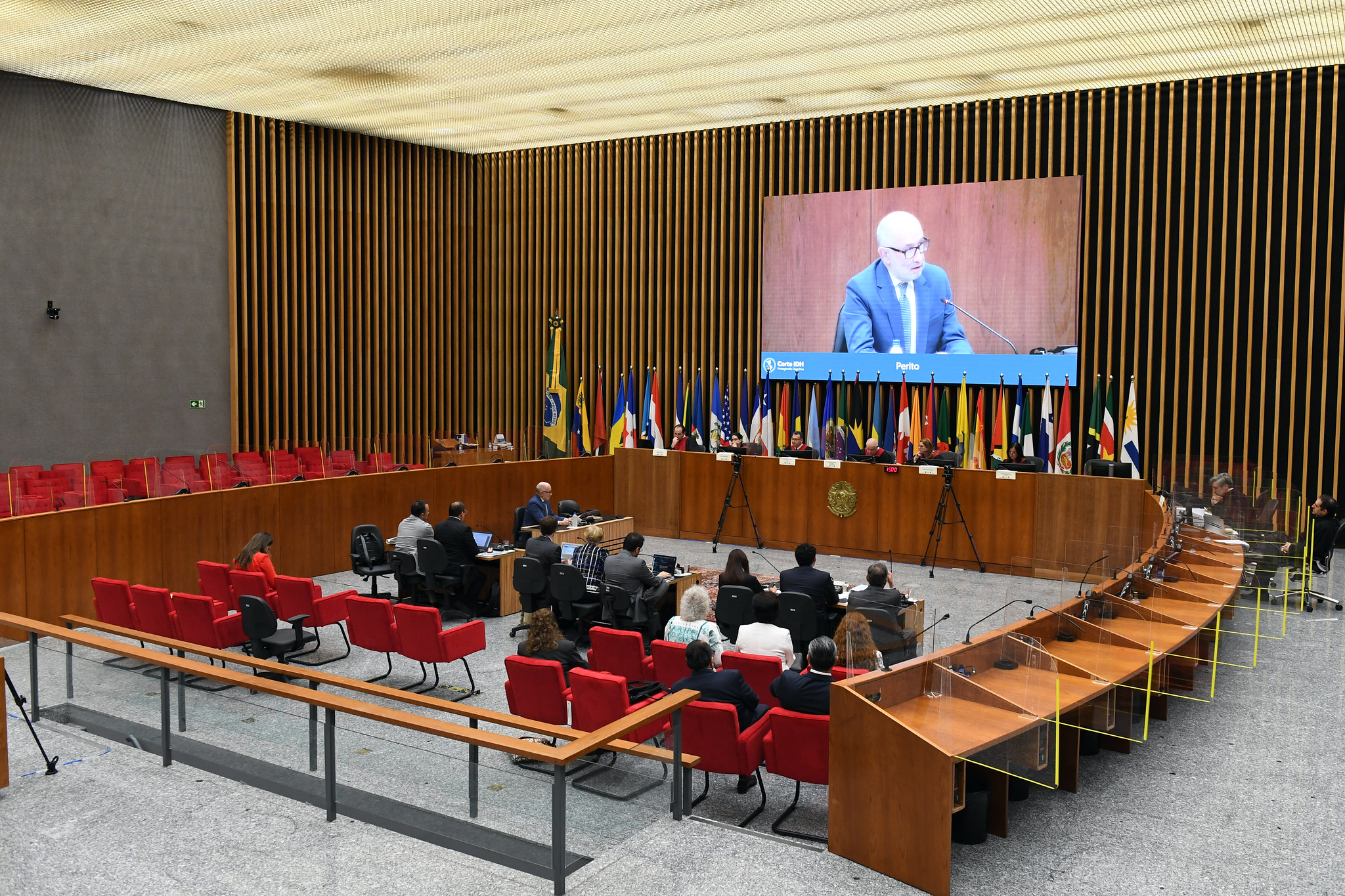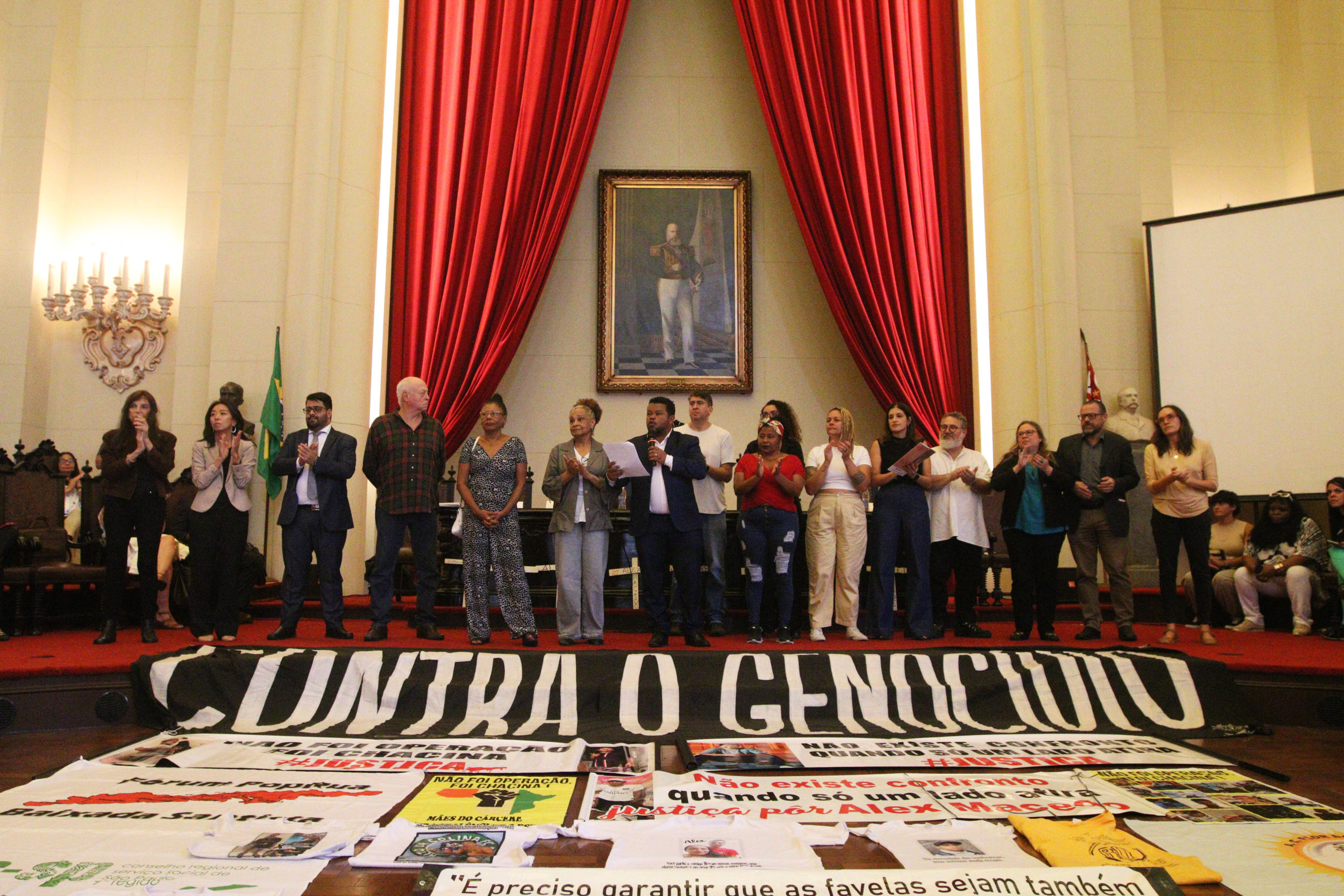Working to change reality
Find out what Conectas does to defend human rights in Brazil and the world
The year 2014 was atypical in Brazil. From the World Cup to the presidential elections, a number of events divided Brazilians, causing them to take to the streets to protest abuses and demand political change.
Issues such as police violence, the appalling situation in Brazilian prisons and the prevalence of economic interests on political, social and cultural rights have profoundly affected the work of rights protection organizations.
It is in this complex and volatile environment that Conectas, based on its 14 years of experience, has fought its oldest battles, adapting strategies to new actors and social dynamics.
Click here to access the 2014 activities report of Conectas.
Through a national campaign to put a stop to abusive searches in prisons, for example, the organization drew society’s attention to this humiliating practice used against the relatives of prisoners on visitation days.
“The abusive search is still a cruel reality in the majority of prisons in Brazil. However, since the campaign began, we have achieved breakthroughs in some important places, such as the state of São Paulo, which has the largest prison population in the country,” said Rafael Custódio, coordinator of the Justice program.
In 2014, the Foreign Policy and Human Rights program of Conectas used a variety of strategies to pressure the Brazilian government to publish the White Paper, a document that will define the guidelines of Brazil’s international action. The strategy of transparency and social participation in foreign policy decision-making processes has been one of the focal points of this program since its inception.
“The publication of the White Paper is essential to ensure democratic control of foreign policy. Society needs to be included in the decisions about how Brazil will act on the world stage,” explained Camila Asano, coordinator of the program.
Applying the same effort, Conectas has reasserted its original commitment to promoting the voices of the Global South in the international debate on human rights by coordinating a network of organizations in countries from Africa, Asia and Latin America. Last year, the 20th issue of Sur Journal was released in various parts of the world, prompting debates and reflections with respected activists, experts and academics.
“SUR was born with the goal of uniting the points of a discussion that until recently was fragmented and trending towards isolation,” said Ana Luiza Cernov, coordinator of the South-South program at Conectas. “Ten years later, the journal is proving its capacity to broaden the critical debate on the theory and practice of human rights and to strengthen those who are fighting for these rights, particularly in the Global South.”
Therefore, in spite of adverse domestic conditions and a challenging international backdrop, the organization made strides in scope and effectiveness in 2014, consolidating its influence in various fields of action.
Read the 2014 Annual Report to learn more about the activities of Conectas and some of the challenges the organization faces on a daily basis.



